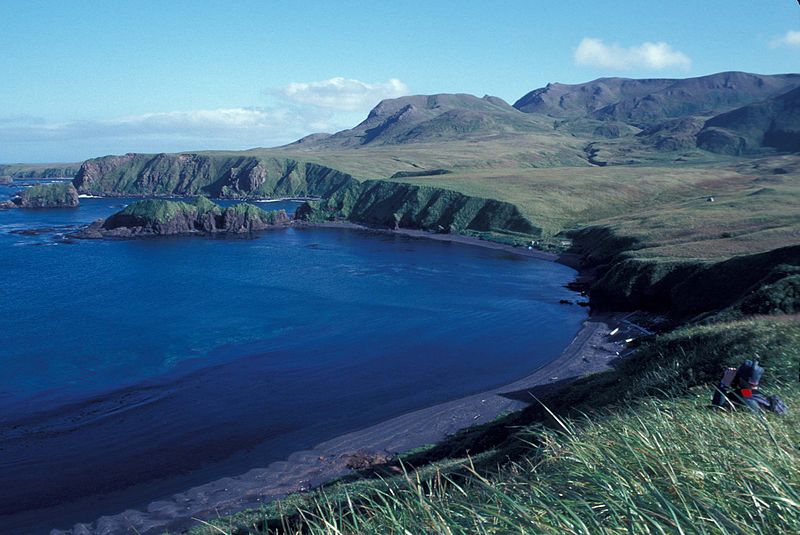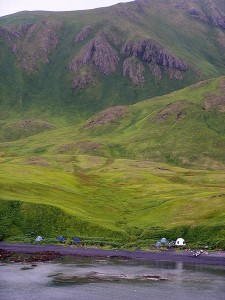Rodents may be a pest on the mainland, but on isolated islands, they can spell complete ecological disaster. Now, one Aleutian island celebrates a hard-won victory.
The island of Hawadax, a sprawling, mountainous landscape covering nearly 27km square, seems an unlikely place for the inspiration of a book, not to mention countless articles in the media. Found in the western part of Alaska’s volcanic Aleutian Islands, the archipelago that trails across the frigid Bering Strait, lonely Hawadax has no permanent population, and there are few reasons to journey there. Unless, of course, you’re a biologist – for the island has had a far too common affliction, but a remarkable success that scientists hope to replicate on other islands. Self-contained ecosystems like small islands pose many unique challenges to those who seek to protect them, but perhaps none is more serious than the threat of invasive species. The most destructive, and most common offender is the rat.
The transformation undergone by the isle has been such that its traditional name in the area’s native Aleut tongue, Hawadax, now goes virtually unused. For more than two centuries, this rugged piece of rock has been known simply as Rat Island. To call the island “over-run” would be a grave understatement. With no predators to speak of, brown Norway rats proliferated on the island into virtually uncountable numbers, entirely destroying native bird populations. The creatures have fed on seabird eggs and chicks – even attacking adults – leaving this former nesting haven barren. And this pestilence has serious consequences – globally, 40-60% of all bird and reptile extinctions can be attributed to invasive rats. But how did so many rats get to remote Rat Island?
The answer is an ancient one. Norway rats, despite their name, actually originated in the area of Northern China approximately 2 million years ago. However, it was not until the advent of international trade that they became mobile. In the 16th century, large ships laden with exotic goods like spices, pottery and embroidered fabric began to traverse the waters between China and Europe, with some unwelcome stowaways aboard. The tenacious critters readily adapted to their new, predator-free environments – especially on islands. And once they found a piece of solid ground, it was virtually impossible to get rid of them.
In the case of Hawadax, the introduction of the rodents – known as a “rat spill” – came in the form of a Japanese ship that wrecked on the island in the late 1700’s. From there, they spread to 16 other islands in the chain, leaving a trail of ecological devastation in their wake. No birds can make their homes on the island; and there are no local animals, including cats and foxes, that are willing to use the rats for food. In 2007, the U.S. Fish and Wildlife Service began an eradication process, involving trapping, poison and other methods in an effort to get rid of the rats without damaging the broader ecosystem. As of 2011, the island was considered officially rat-free.
There is hope now for Rat Island, and many others like it – the strict policies of non-contamination, where local Alaskan ports can reject ships thought to have rat problems, will prevent future “spills”, and the careful monitoring of the island’s ecosystem by biologists and government employees will ensure that any potential reoccurrence will be nipped in the bud. Most promisingly, birds have flocked back to their former sanctuary, as geese, falcons and rock ptarmigan have started to build their nests in safety. A government program to restore the island back to a haven for these birds has seen a remarkable success. It may be time, after centuries, for Rat Island’s name to return to Hawadax.
Read an interview with the author of “Rat Island: Predators in Paradise and the World’s Greatest Wildlife Rescue” in Salon Magazine: Link




